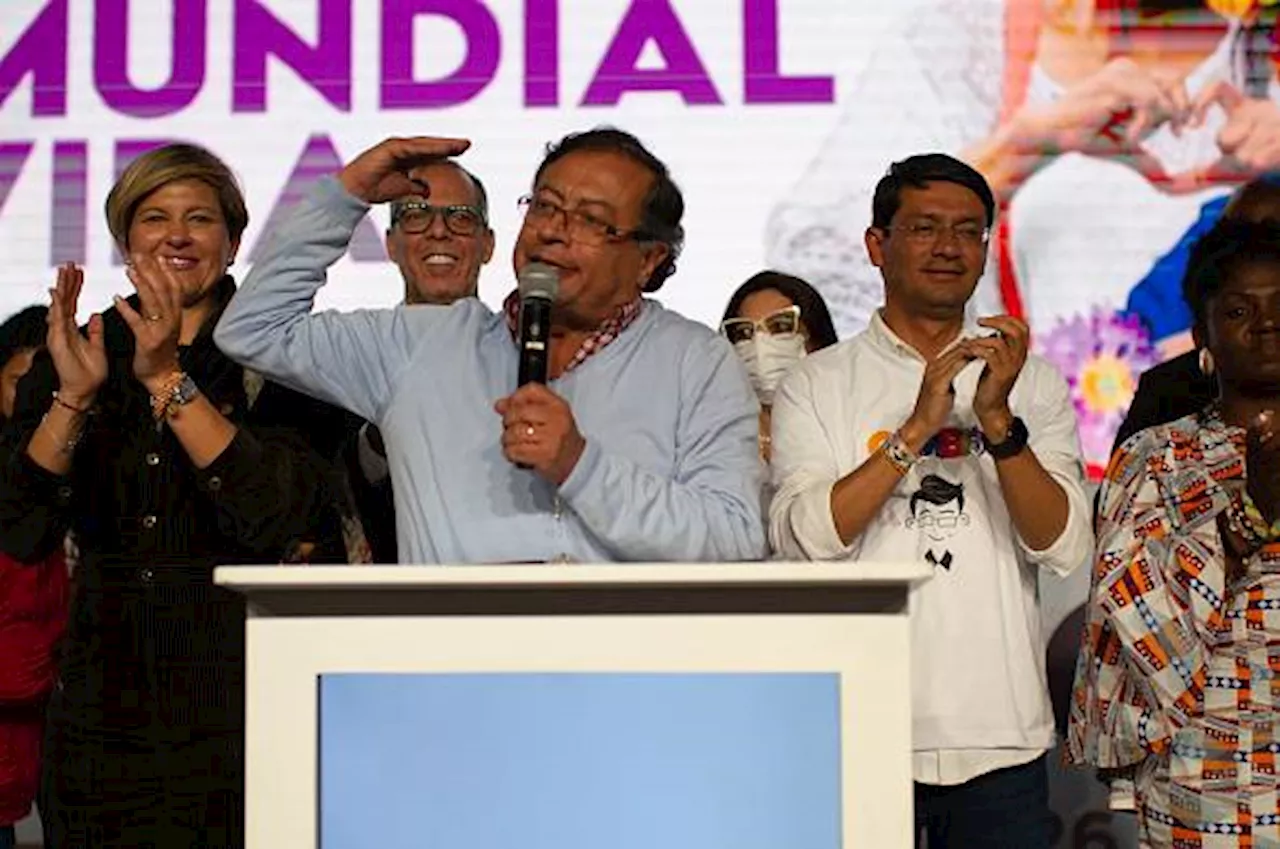Colombia's new left-wing government, led by President Gustavo Petro and Vice President Francia Márquez, marks a historic turning point in the nation's struggle for social justice. Facing deep inequalities and a history of violence, the Petro administration is implementing progressive policies aimed at land reform, economic redistribution, and environmental sustainability.
Colombia ’s political history has long been marked by virulent and often violent conflict between entrenched elites and a series of insurgent movements seeking to challenge their dominance. There has been a strong racial aspect to this and right-wing governments have been consistently backed by US imperialism. In February 2021, the Pacto Histórico was launched to challenge the deep structural inequalities that shape life in the country.
It was a coalition of progressive forces, including leftist parties, social movements, grassroots organisations and progressive intellectuals. In June the following year, the Pacto Histórico achieved a historic victory marking the first time in Colombia’s history that the left successfully ascended to national leadership. Gustavo Petro became president and Francia Márquez vice-president. It was a moment of profound political change in such a deeply unequal and violent country. Like Durban, Colombia is an incredibly dangerous place for grassroots activists to challenge political gangsterism. In the past 10 years more than 1 500 activists have been assassinated, mostly poor people of African and indigenous descent. Under these exceptionally difficult circumstances Petro and Márquez, leading the Pacto Histórico coalition, achieved a historic victory by constructing and mobilising a broad social base, including the urban poor, Indigenous people, Afro-Colombians, and organised labour. Petro’s political career began as a member of the M-19 guerrilla movement, which later transitioned into a political party. During his time with M-19, Petro was imprisoned for two years. Like Álvaro García Linera, the former vice-president of Bolivia, and so many other radicals, Petro used the time in prison to immerse himself in Marxist and liberation theology texts, including work by the Italian communist, Antonio Gramsci, and José Carlos Mariátegui, a Peruvian Marxist, who developed an analysis of the relation between Indigenous struggles and socialism. Over time, Petro shifted from armed militancy to electoral politics, becoming a senator and later the mayor of Bogotá. As mayor, Petro championed initiatives to address inequality, including expanding access to education through free uniforms and meals for low-income students, improving healthcare in poor neighbourhoods and promoting public transportation and cycling infrastructure. He also implemented a number of environmental reforms. Before her rise to political prominence, Márquez, the first Afro-Colombian person to hold high office in Colombia, worked as a domestic worker. She later became an important community leader and environmental activist surviving a number of assassination attempts. Race is central in Colombia’s political and social dynamics and Márquez’s election is a groundbreaking moment in a country where systemic racism remains deeply entrenched. Her leadership has brought visibility to issues of racial and environmental justice. Her activism highlights the intersection of race, class and environmental exploitation, particularly in regions where Afro-Colombian and Indigenous people face the double burden of poverty and ecological degradation. The new government ‘s programme focuses on addressing structural inequalities through progressive taxation, land reform and investments in education, healthcare and renewable energy. Petro has pledged to move Colombia away from its dependence on fossil fuels and to address the environmental crisis through sustainable development policies. Márquez has been a strong advocate for prioritising the voices of marginalised people, including women and sexual minorities, in this transition. In October 2024, the new government commenced the largest land distribution in the country’s history, transferring 50,000 hectares to rural workers across various regions. This initiative is part of a broader goal to redistribute 1.5 million hectares during Petro’s term. Petro’s government has expanded social welfare programmes to include direct cash transfers aimed at alleviating extreme poverty and reducing inequality. These initiatives prioritise rural communities, single mothers and displaced people, focusing on uplifting those most affected by conflict and economic neglect. Petro has expressed aspirations to transition towards a universal basic income model, ensuring a guaranteed minimum income for all Colombian
Colombia Gustavo Petro Francia Márquez Pacto Histórico Social Justice Land Reform Inequality Environmental Sustainability Left-Wing Politics
South Africa Latest News, South Africa Headlines
Similar News:You can also read news stories similar to this one that we have collected from other news sources.
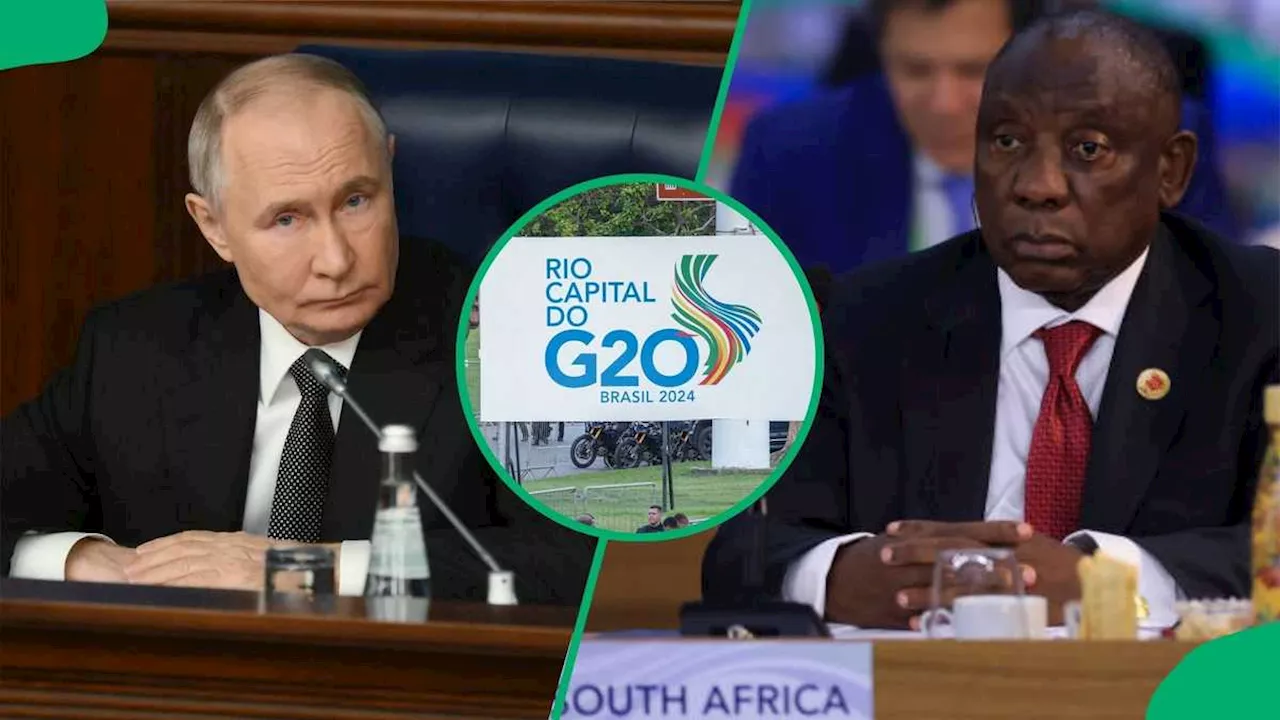 SA Excludes Vladimir Putin From G20 Summit, Decision Linked to Arrest Warrant for Russian PresidentSouth African won't invite Vladimir Putin to next year's G20 Summit in Johannesburg due to a warrant for his arrest by the International Criminal Court.
SA Excludes Vladimir Putin From G20 Summit, Decision Linked to Arrest Warrant for Russian PresidentSouth African won't invite Vladimir Putin to next year's G20 Summit in Johannesburg due to a warrant for his arrest by the International Criminal Court.
Read more »
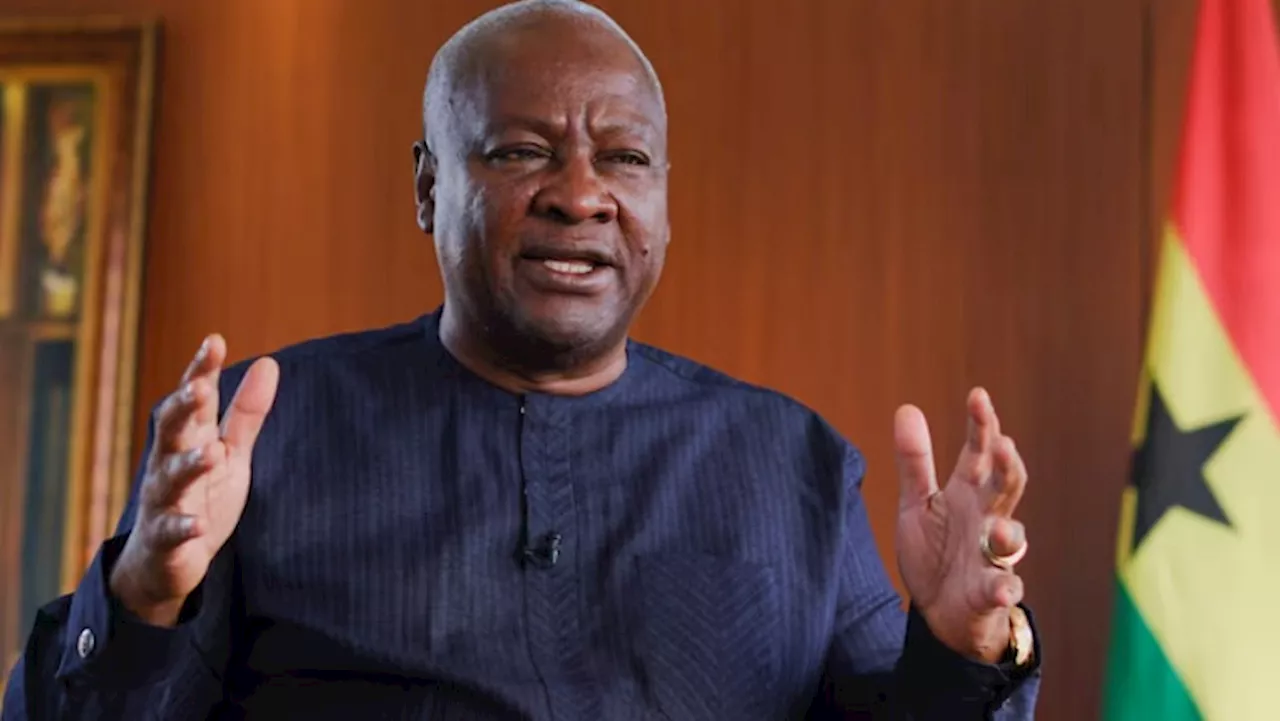 Ghana's President-elect Mahama Forms Anti-Corruption TeamJohn Dramani Mahama, Ghana's incoming president, has established a team dedicated to combating corruption. The team, headed by MP Samuel Okudzeto Ablakwah, includes experts from various fields with experience in investigating financial irregularities and tackling crime.
Ghana's President-elect Mahama Forms Anti-Corruption TeamJohn Dramani Mahama, Ghana's incoming president, has established a team dedicated to combating corruption. The team, headed by MP Samuel Okudzeto Ablakwah, includes experts from various fields with experience in investigating financial irregularities and tackling crime.
Read more »
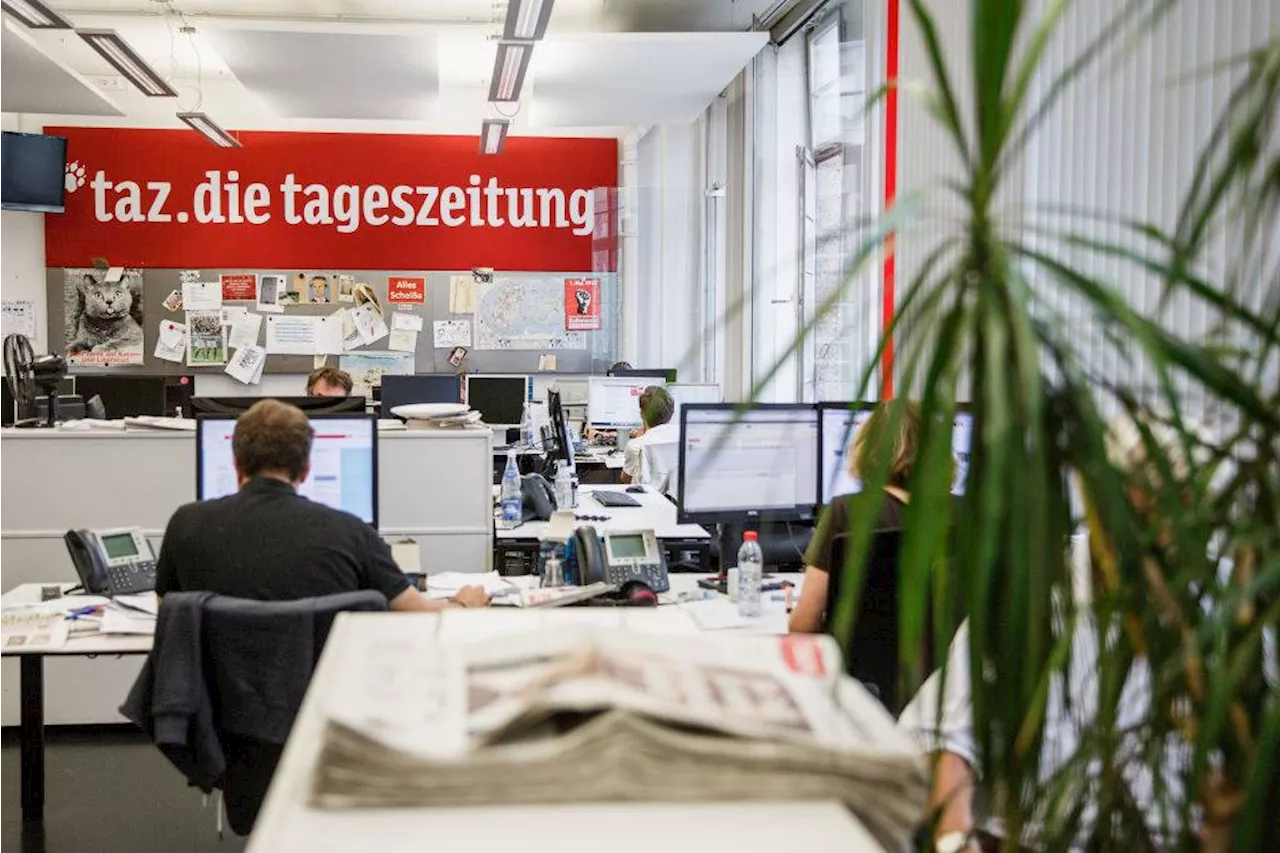 German President Backs South Africa's G20 PresidencyGerman President Frank-Walter Steinmeier visited South Africa, expressing support for the country's upcoming G20 presidency. The visit also included discussions on disinformation and media resilience in Africa.
German President Backs South Africa's G20 PresidencyGerman President Frank-Walter Steinmeier visited South Africa, expressing support for the country's upcoming G20 presidency. The visit also included discussions on disinformation and media resilience in Africa.
Read more »
 Zimbabwe Renames Roundabout After President Mnangagwa's Liberation War NameZimbabwe's government has renamed Mbudzi roundabout to Trabablas Interchange, honoring President Emmerson Mnangagwa's liberation war name. This move follows a pattern of renaming streets and roads after Mnangagwa, who is rumored to seek a third term despite constitutional limits.
Zimbabwe Renames Roundabout After President Mnangagwa's Liberation War NameZimbabwe's government has renamed Mbudzi roundabout to Trabablas Interchange, honoring President Emmerson Mnangagwa's liberation war name. This move follows a pattern of renaming streets and roads after Mnangagwa, who is rumored to seek a third term despite constitutional limits.
Read more »
 Botswana President Denies Receiving Cattle Gift from Zimbabwean CounterpartBotswana President Duma Boko refutes claims of receiving 10 Ankole cattle from Zimbabwean President Emmerson Mnangagwa, calling the allegations 'baseless propaganda'.
Botswana President Denies Receiving Cattle Gift from Zimbabwean CounterpartBotswana President Duma Boko refutes claims of receiving 10 Ankole cattle from Zimbabwean President Emmerson Mnangagwa, calling the allegations 'baseless propaganda'.
Read more »
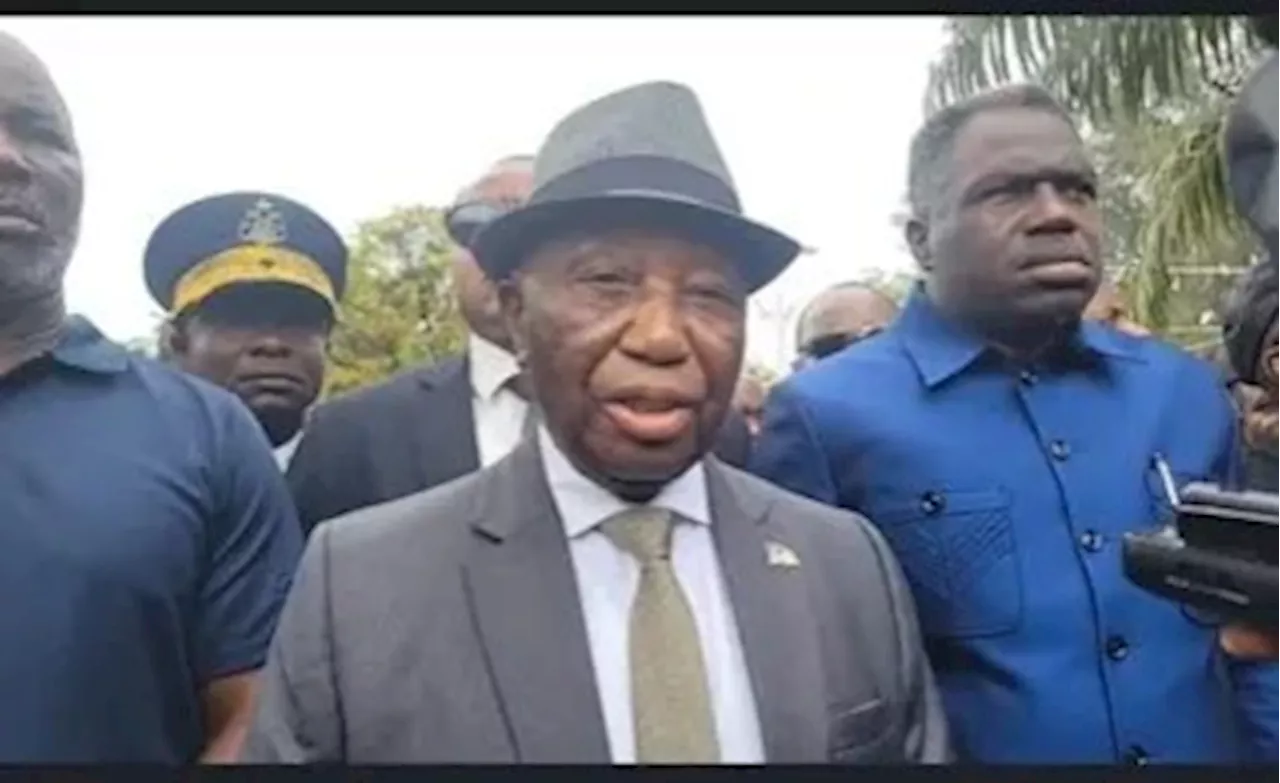 Liberian President Orders Capitol Fire InvestigationPresident Joseph Boakai has vowed to bring those responsible for Wednesday's fire at the Liberian Capitol to justice. The fire damaged the Joint Chamber of the Legislature, less than 24 hours after violent clashes between police and protesters.
Liberian President Orders Capitol Fire InvestigationPresident Joseph Boakai has vowed to bring those responsible for Wednesday's fire at the Liberian Capitol to justice. The fire damaged the Joint Chamber of the Legislature, less than 24 hours after violent clashes between police and protesters.
Read more »
